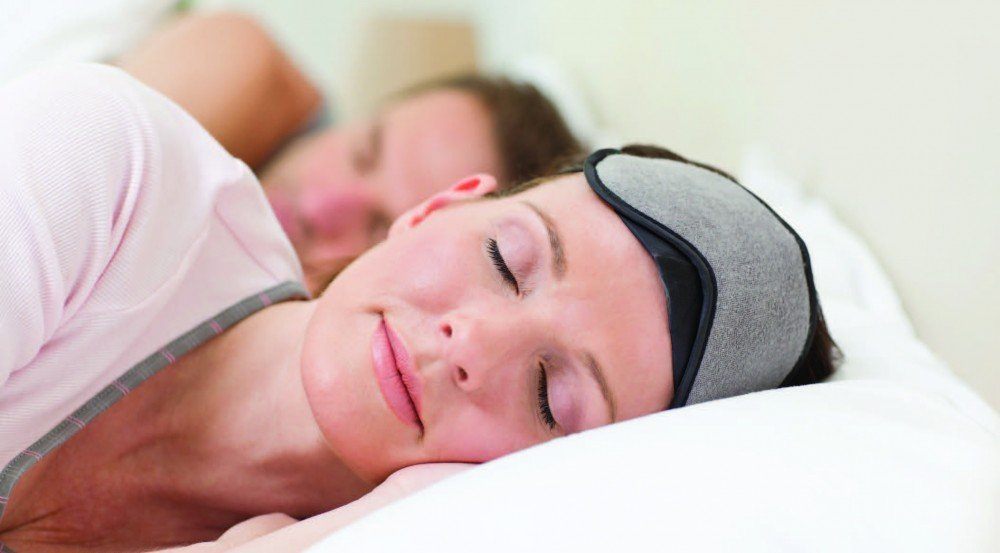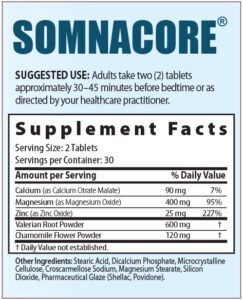Our body uses special chemicals known as hormones that travel through the bloodstream to tissues and organs and control most of our body’s major systems. Melatonin is one of the vital hormones that our bodies use to help us function properly. This article will shed light on melatonin: the facts.
What is Melatonin?
Melatonin is a hormone that the brain generates in response to darkness. It is primarily released by the pineal gland during the night and has long been associated with control of the sleep-wake cycle. It aids with the timing of the circadian rhythms (our 24-hour internal clock) and with sleep.
Research has suggested that melatonin plays other essential roles in the body beyond sleep, as it is also a powerful antioxidant, which may provide a variety of other benefits such as:
- ease tinnitus symptoms
- raise growth hormone levels in men
- supporting eye health
- treating stomach ulcers and heartburn
Melatonin used as medicine is generally made artificially in a laboratory. It is most frequently obtainable in pill form, but it is also offered in versions that can be placed in the cheek or under the tongue. This placement allows the melatonin to be absorbed directly into the body.
Melatonin is most regularly used for insomnia and improving sleep under different conditions. For example, it is used for jet lag, adjusting sleep-wake cycles in individuals whose daily work schedule changes (shift-work disorder), and helping people establish a day and night cycle.
How does Melatonin Work?
As mentioned earlier, melatonin works together with the body’s circadian rhythm.
In plain terms, the circadian rhythm is the body’s internal clock. It lets the body know when it is time to sleep, wake, and eat.
Melatonin additionally helps regulate the body’s temperature, blood pressure, and levels of some hormones.
Melatonin levels start to rise in the body when it is dark outside, signaling to the body that it is time for sleep (8).
It additionally attaches to receptors in the body that can aid the body with relaxing.
For example, melatonin attaches to receptors in the brain to aid in reducing nerve activity.
It can reduce levels of dopamine, a hormone that helps the body stay awake. It is additionally occupied in some part of the day-night cycle of the eyes.
Though the exact way melatonin aids in falling asleep is unclear, studies suggest that these processes can aid in falling asleep.
Conversely, light suppresses melatonin production. Light is one way that the body knows it is time to wake up. There is more on the causes of this suppression to follow.
Melatonin Deficiency
As melatonin helps the body prepare for sleep, individuals who do not produce enough of it at night may have trouble falling asleep.

Melatonin deficiency is a significant cause of insomnia and sleep difficulties. Inequities in the diurnal pattern (a pattern that occurs every 24 hours.) of the glucocorticoid hormone cortisol can additionally lead to sleep problems. It is formed by the adrenal glands and is often spoken to as the “stress hormone.”
Causes of Melatonin Deficiency
There are numerous aspects that may cause low melatonin levels at night.
Stress, smoking, exposure to excessive light at night (especially blue light), insufficient natural light during the day, shift work, and aging all affect melatonin production. Additionally, medications, both prescription and over-the-counter drugs, can cause a melatonin deficiency.
Taking a melatonin SUPPLEMENT can help offset low levels and normalize the body’s internal clock.
Symptoms of Melatonin Deficiency
Below are symptoms and conditions associated with melatonin deficiency
- Age-Related Macular Degeneration & Cataracts
- Alzheimer’s Disease
- Anxiety
- Attention Deficit Hyperactivity Disorder (ADHD) & Autism
- Cancer (e.g., breast, prostate, brain)
- Cardiovascular Disease
- Chemotherapy Side Effects
- Delayed Sleep Phase Syndrome
- Depression
- Headaches
- High Blood Pressure
- Irritable bowel syndrome
- Jetlag
- Male Pattern Balding
- Perimenopause
- Shift Work
- Sleep Disturbances
- Tinnitus
- Wrinkles
How to Avoid a Melatonin Deficiency

No matter how hard we try to live a balanced life, conditions can occur that are beyond our control. Below are some things that can help to avoid having a melatonin deficiency
- Avoid artificial light after sunset with the installation of a blue blocker app on your smartphone, for example, Twilight for Android & Night Shift for iPhone. For the computers (laptop and desktop), the app F.Lux is suitable. Another way one can protect themselves in the evening is to wear blue blocker glasses.
- The bedroom should be prepared for a peaceful night. Fresh and cool air lets an individual sleep optimally. Dark curtains keep the bright daylight out in the morning to avoid being woken too early.
- Regular bedtime influences the synchronization of the biorhythms. Therefore, an individual should try to adopt a routine that best suits their needs.
- Conclude your working day on a positive note by focusing on something peaceful. This will keep motivation up and reduces stress.
- Nutrition – Certain foods contain melatonin: cherries, walnuts, mustard, corn, rice, ginger, peanuts, barley, oats, asparagus, and tomatoes.
Taking Melatonin
For an individual taking melatonin for the first time, start with a lower-dose supplement.
For example, begin with 0.5 mg (500 micrograms) or 1 mg ½ hour before bedtime. If that does not prove successful with assistance in falling asleep, the dose can be increased to 3–5 mg.
Consuming more melatonin than this likely will not assist an individual fall asleep faster. The objective is to find the lowest dose that will help an individual to fall asleep.
However, it is best to follow the instructions that come with the supplement.
Melatonin is widely available in the US. Shop for melatonin online. [affiliate link]
A prescription is needed for melatonin in other places, such as Australia and the European Union.
There are also natural supplements that contain a calculated combination
of vitamins and nutrients to provide healthy,

restful sleep. Shop for an all-natural supplement online. [affiliate link]

Melatonin Side Effects and Safety
Current research evokes that melatonin supplements are safe, non-toxic, and not addictive.
Having said that, some individuals may experience mild side effects, such as:
- dizziness
- headaches
- nausea
Melatonin additionally may interact with a variety of medications. These include:
- *anticonvulsants
- antidepressants
- blood pressure medication
- blood thinners
- diabetes medications
- immunosuppressants
- oral contraceptives
- sleep aids or sedatives
For individuals with a health condition or on any of the above medications, they should check with their physician before commencing taking a supplement.
There is additionally some concern that consuming too much melatonin will stop the body from making it naturally.
However, several studies have discovered that consuming melatonin will not affect the body’s ability to produce it independently.
Taking Melatonin with Alcohol
Drops in melatonin levels can take place following evening alcohol consumption. One study in 29 young adults established that alcohol consumption one (1) hour before bed can reduce melatonin levels by up to 19%.
Low levels of melatonin have additionally been identified in individuals with alcohol use disorder (AUD).
Additionally, melatonin levels rise slower in subjects with an alcohol dependency, meaning it can be harder to fall to sleep.
However, it is essential to note melatonin supplementation does not improve sleep in these cases. A study of people with AUD established that, compared to placebo, receiving 5 mg of melatonin a day for four weeks did not improve sleep.
It has been anticipated that the antioxidant effects of melatonin may assist in preventing or treating alcohol-related illnesses. Though, further research is required to investigate this claim.
Concerning Older Adults
Melatonin secretion decreases as an individual ages. These natural declines can possibly lead to poor sleep in elderly adults.
As with other age groups, the use of melatonin supplementation in elderly adults is yet being examined. Research indicates that melatonin supplementation can improve sleep inception and duration in older adults.
One literature review found some evidence for using low-dose melatonin for older people who are having trouble sleeping. However, more research is needed.
Melatonin may additionally assist individuals with mild cognitive impairment (MCI) or Alzheimer’s disease.
Some studies have revealed that melatonin can possibly improve sleep quality, feelings of restlessness, and morning alertness in people diagnosed with these conditions. Research into this topic is continuing.
Even though melatonin is well medically tolerated in older adults, there are worries concerning increased daytime drowsiness. In addition, the consequences of melatonin may be lingering in older adults.
The most efficient dosage of melatonin for older adults has not been determined.
However, a recent recommendation recommends that a maximum of 1 to 2 mg be taken 1 hour before bedtime. It is additionally recommended that immediate-release tablets be used to prevent delayed levels of melatonin in the body.
Melatonin plays an important role in our overall health. Sleep is vital for our well-being, and melatonin is essential in initiating that process.
Questions, comments, and concerns are welcomed below.
Good health!!
Hi Nathaniel
Thanks for sharing your views on melatonin hormone. My wife is having problem in sleep at night time and also has headache and blood pressure issue. After reading your article I could sense that there might be melatonin deficiency in her. Now I have planned to go to the doctor and discuss this issue. The supplement you suggested seems to be great for her.
Warm Regards,
Gaurav Gaur
Hi Gaurav – Great idea to pay a visit to the doctor with your wife. It would also be a good idea to talk to the doctor about the ingredients of the supplement. I hope she improves soon.
Thanks for commenting!
Great informative article about Melatonin, although I knew a little about it I now know a lot more, thank you.
I had trouble sleeping recently and believe this could have helped but it is not a commonly seen thing in Australia. My doctor did not even mention it, I am not sure why it is not more widely used in Australia. Do you have any more info about this?
Hello again Dave – Unfortunately, natural products do not get promoted the same as pharmaceuticals. Medix Select, the company that manufactures the supplement, does not ship to Australia. Perhaps if you take the label displayed in the article to your local health food store or vitamin outlet, you can find a suitable product.
Thanks for commenting.